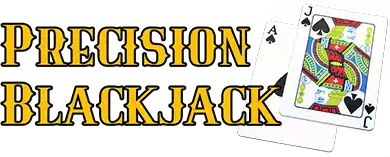- Posted on
- By webchiadmin
- In Intermediate
- Leave a comment

Understanding Card Counting: Can You Really Beat the House?
The Myth and Reality of Card Counting
Card counting is one of the most famous and controversial strategies in the world of blackjack. Thanks to movies, books, and the exploits of legendary players, card counting has become synonymous with the idea of “beating the house.” But while it’s true that card counting can tilt the odds in your favor, it’s not the magic bullet that many people believe it to be.
In this article, we’ll explore the realities of card counting, breaking down what it is, how it works, and whether it’s really possible to beat the house using this strategy. By the end, you’ll have a clear understanding of the risks and rewards associated with card counting and whether it’s a technique worth pursuing.
What is Card Counting?
Card counting is a strategy used by blackjack players to keep track of the high and low cards that have been dealt in a game. The idea is that by knowing which cards are still in the deck, you can make more informed decisions about how to bet and play your hand.
The Basics of Card Counting
The basic premise of card counting is simple: certain cards are more favorable to the player than others. For example, 10s, face cards, and Aces are beneficial to the player because they increase the chances of hitting a blackjack or landing a strong hand. Conversely, low cards (2-6) are more favorable to the dealer because they reduce the chances of busting when hitting on a low total.
By keeping a running count of the cards that have been dealt, players can estimate the ratio of high cards to low cards remaining in the deck. When the deck is rich in high cards, the player has an advantage and can increase their bets accordingly. When the deck is rich in low cards, the dealer has the advantage, and the player should bet conservatively.

How Card Counting Works
Most card counting systems assign a point value to each card in the deck:
- Low cards (2-6): +1
- Neutral cards (7-9): 0
- High cards (10, Jack, Queen, King, Ace): -1
As cards are dealt, the player adds or subtracts these point values from a running count. A positive running count indicates that more low cards have been dealt, leaving a higher proportion of high cards in the deck—this is when the player has an advantage. A negative count indicates the opposite, suggesting that the dealer is more likely to win.
The Realities of Card Counting
While card counting can give you an edge over the casino, it’s important to understand that it’s not a foolproof strategy. Here are some of the key realities of card counting:
- It’s Not Illegal, But It’s Not Welcome
Contrary to popular belief, card counting is not illegal. You’re not breaking any laws by counting cards, but casinos don’t look kindly on the practice. If a casino suspects you of counting cards, they have the right to ask you to leave, and they may even ban you from playing blackjack in the future. Some casinos use countermeasures such as shuffling the deck more frequently, using multiple decks, or employing “no mid-shoe entry” rules to make card counting more difficult.
- It Requires Intense Concentration
Card counting is not as easy as it might seem in the movies. It requires intense concentration, excellent memory, and the ability to make quick calculations under pressure. You’ll need to keep track of the running count, adjust your betting strategy based on the count, and still play each hand according to basic strategy—all while avoiding detection by the casino.
- The Edge is Small
Even if you’re an expert card counter, the edge you gain over the casino is relatively small—typically around 1-2%. This means that while you can increase your chances of winning in the long run, you’re still subject to the ups and downs of variance. It’s entirely possible to have long losing streaks even when you’re counting cards correctly.
- It Takes Practice
Card counting is a skill that requires significant practice to master. You’ll need to practice keeping a running count while playing blackjack, and it’s a good idea to use card counting drills or apps to improve your speed and accuracy. Even then, transitioning to a real casino environment, where distractions and pressure are high, can be challenging.

How to Get Started with Card Counting
If you’re intrigued by the idea of card counting and want to give it a try, here’s how you can get started:
- Learn Basic Strategy First
Before you even think about card counting, you need to master basic blackjack strategy. Card counting is an advanced technique that builds on the foundation of basic strategy, so it’s crucial to have a solid understanding of the game before adding the complexity of card counting.
- Choose a Card Counting System
There are several different card counting systems, ranging from simple to complex. The Hi-Lo system is one of the most popular and easiest to learn, making it a great starting point for beginners. More advanced systems, like the Omega II or Wong Halves, offer greater precision but are more difficult to master.
- Practice at Home
Start by practicing card counting at home in a low-pressure environment. Use a deck of cards and go through it, keeping a running count as you go. Once you’re comfortable, try practicing while playing blackjack online or with friends. The goal is to make card counting second nature before you attempt it in a casino.
- Implement Betting Strategy
As you practice card counting, work on integrating your betting strategy. When the count is positive, increase your bets to capitalize on your advantage. When the count is negative, decrease your bets to minimize losses. Remember, your goal is to vary your bets based on the count without drawing attention to yourself.
- Practice Stealth
One of the biggest challenges of card counting is avoiding detection by the casino. To do this, you’ll need to practice blending in. Avoid making dramatic changes in your bet sizes, don’t stare at the cards too intensely, and try to maintain a casual demeanor. The more natural you appear, the less likely you are to be flagged as a counter.
Should You Count Cards? The Pros and Cons
Now that you understand the basics of card counting, you might be wondering if it’s worth pursuing. Here are some of the pros and cons to consider:
Pros:
- Potential for Profit: When done correctly, card counting can give you a small but significant edge over the casino, potentially leading to long-term profits.
- Intellectual Challenge: Card counting is a mentally stimulating exercise that appeals to those who enjoy strategy and mathematics.
- Enhanced Game Enjoyment: Some players find that card counting adds an extra layer of excitement and engagement to the game.
Cons:
- Detection Risk: If you’re caught counting cards, you may be asked to leave the casino or banned from playing blackjack.
- High Variance: Even with card counting, you’re still subject to the natural variance of blackjack, meaning you can experience significant losing streaks.
- Intensive Practice: Card counting requires a lot of practice and discipline, which may not appeal to casual players.
Conclusion: Can You Really Beat the House?
Card counting is a fascinating and effective strategy that can give you an edge in blackjack, but it’s not a guaranteed path to riches. While it’s possible to beat the house over the long term, doing so requires skill, practice, and a willingness to accept the risks involved.
If you’re serious about card counting, start by mastering basic strategy and practicing regularly. Understand the challenges and limitations of the technique, and approach it with a realistic mindset. With dedication and persistence, you can use card counting to improve your blackjack game and potentially turn the odds in your favor.
But remember—card counting isn’t for everyone. If the idea of intense concentration, potential casino bans, and small edges doesn’t appeal to you, it might be better to focus on other strategies that allow you to enjoy the game without the added pressure. Whatever you choose, the most important thing is to have fun and play responsibly. Good luck at the tables!



No comment yet, add your voice below!